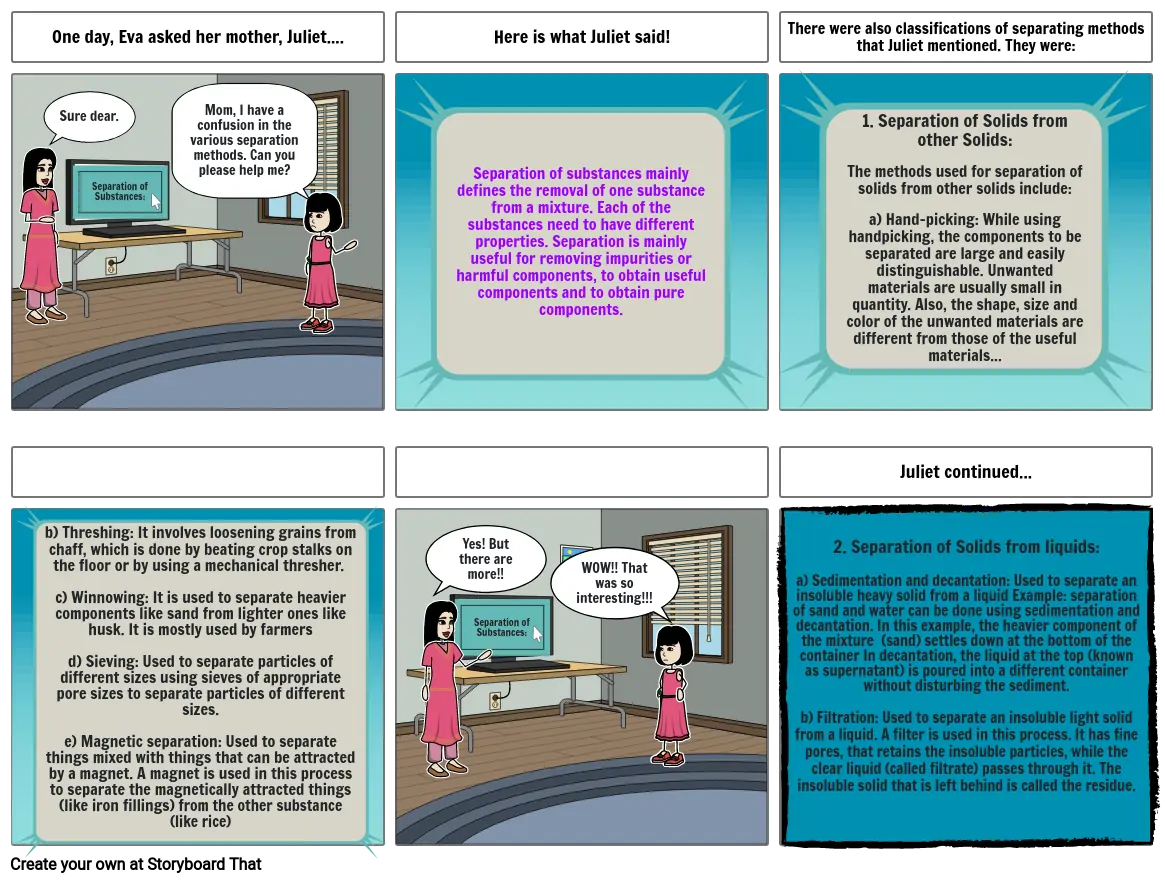Separation of Substances Comic Strip (1)

Texte du Storyboard
- One day, Eva asked her mother, Juliet....
- Sure dear.
- Separation of Substances:
- Mom, I have a confusion in the various separation methods. Can you please help me?
- Separation of substances mainly defines the removal of one substance from a mixture. Each of the substances need to have different properties. Separation is mainly useful for removing impurities or harmful components, to obtain useful components and to obtain pure components.
- Here is what Juliet said!
- 1. Separation of Solids from other Solids:The methods used for separation of solids from other solids include:a) Hand-picking: While using handpicking, the components to be separated are large and easily distinguishable. Unwanted materials are usually small in quantity. Also, the shape, size and color of the unwanted materials are different from those of the useful materials...
- There were also classifications of separating methods that Juliet mentioned. They were:
-
- b) Threshing: It involves loosening grains from chaff, which is done by beating crop stalks on the floor or by using a mechanical thresher. c) Winnowing: It is used to separate heavier components like sand from lighter ones like husk. It is mostly used by farmersd) Sieving: Used to separate particles of different sizes using sieves of appropriate pore sizes to separate particles of different sizes.e) Magnetic separation: Used to separate things mixed with things that can be attracted by a magnet. A magnet is used in this process to separate the magnetically attracted things (like iron fillings) from the other substance (like rice)
-
- Yes! But there are more!!
- Separation of Substances:
- WOW!! That was so interesting!!!
- 2. Separation of Solids from liquids:a) Sedimentation and decantation: Used to separate an insoluble heavy solid from a liquid Example: separation of sand and water can be done using sedimentation and decantation. In this example, the heavier component of the mixture (sand) settles down at the bottom of the container In decantation, the liquid at the top (known as supernatant) is poured into a different container without disturbing the sediment.b) Filtration: Used to separate an insoluble light solid from a liquid. A filter is used in this process. It has fine pores, that retains the insoluble particles, while the clear liquid (called filtrate) passes through it. The insoluble solid that is left behind is called the residue.
- Juliet continued...
Plus de 30 millions de storyboards créés

